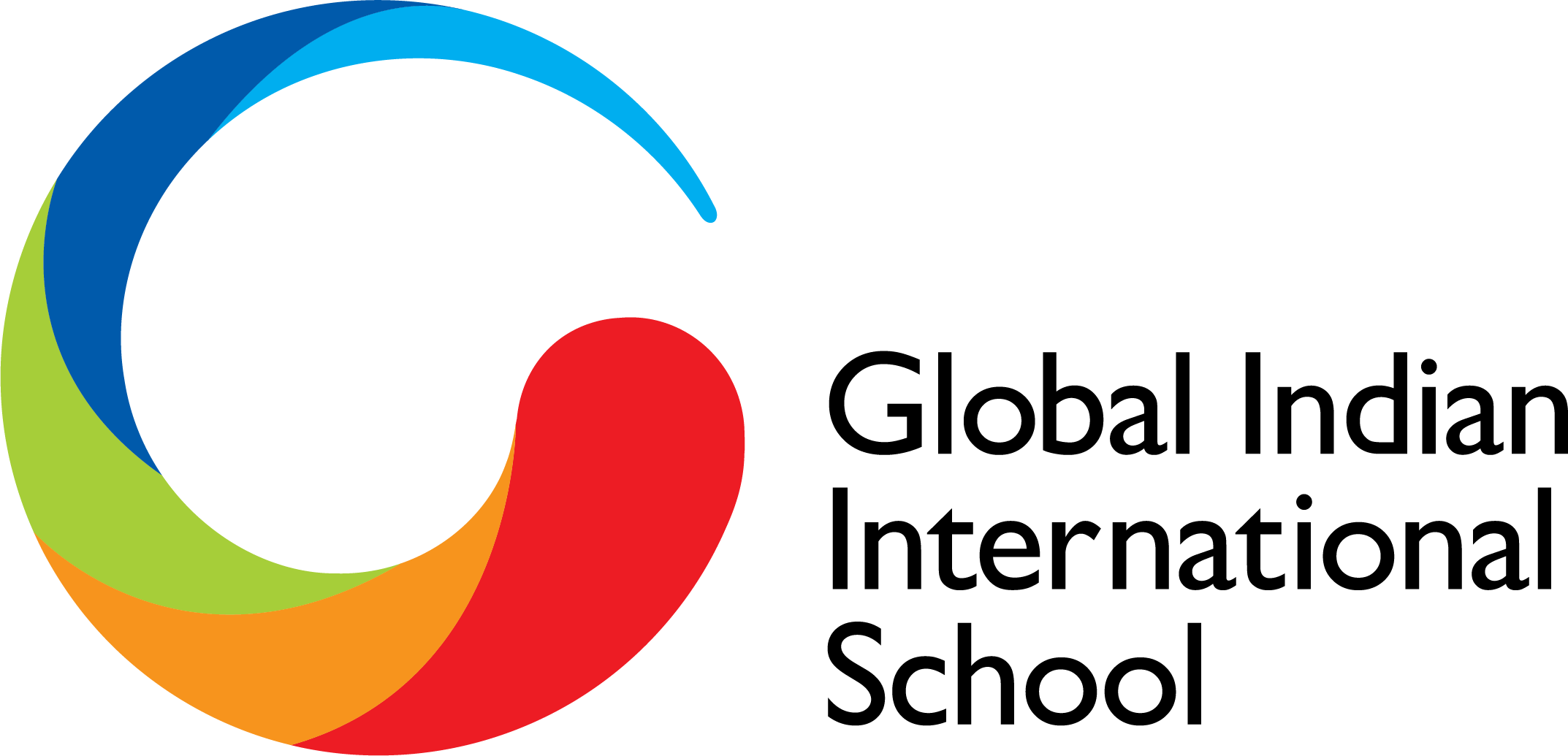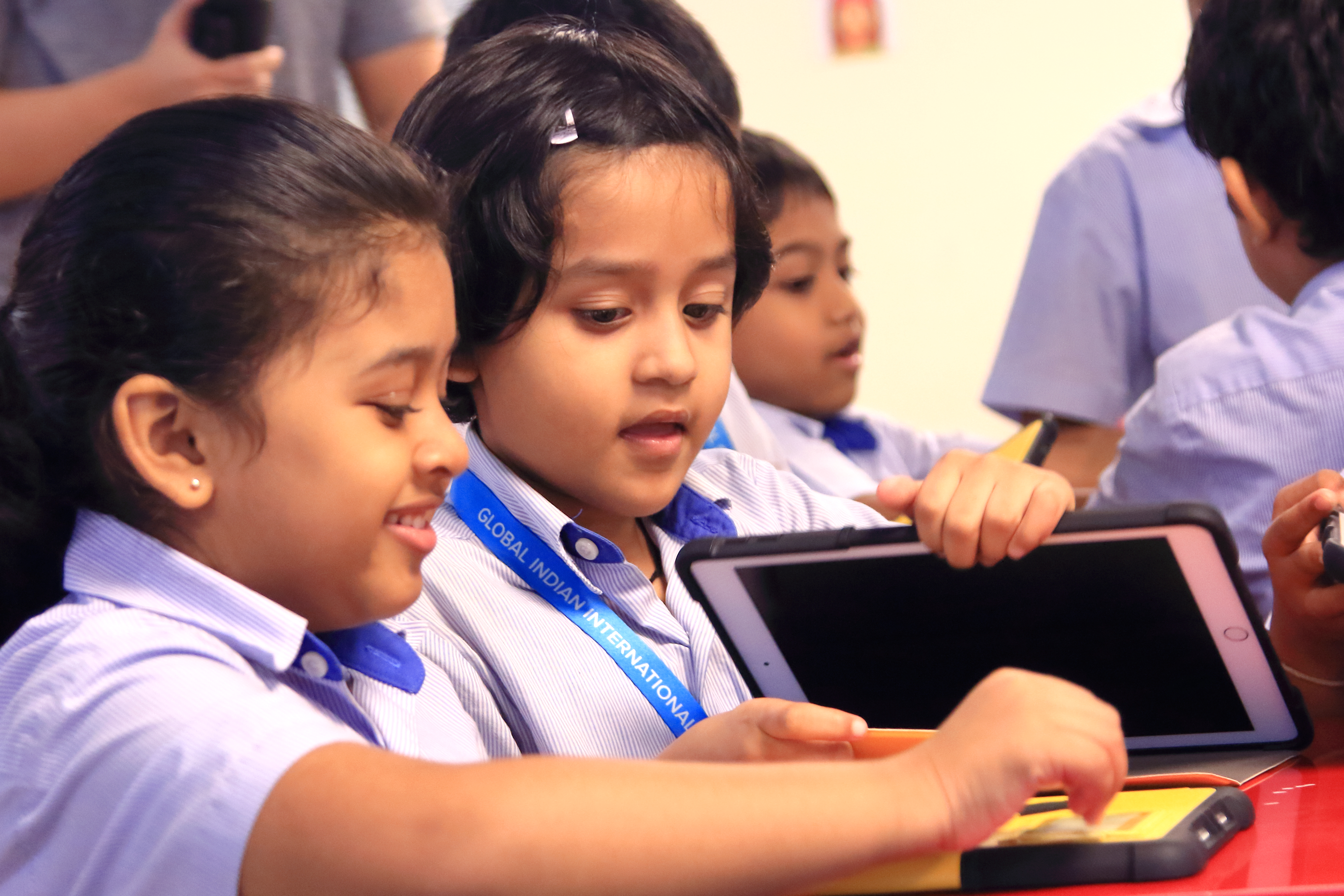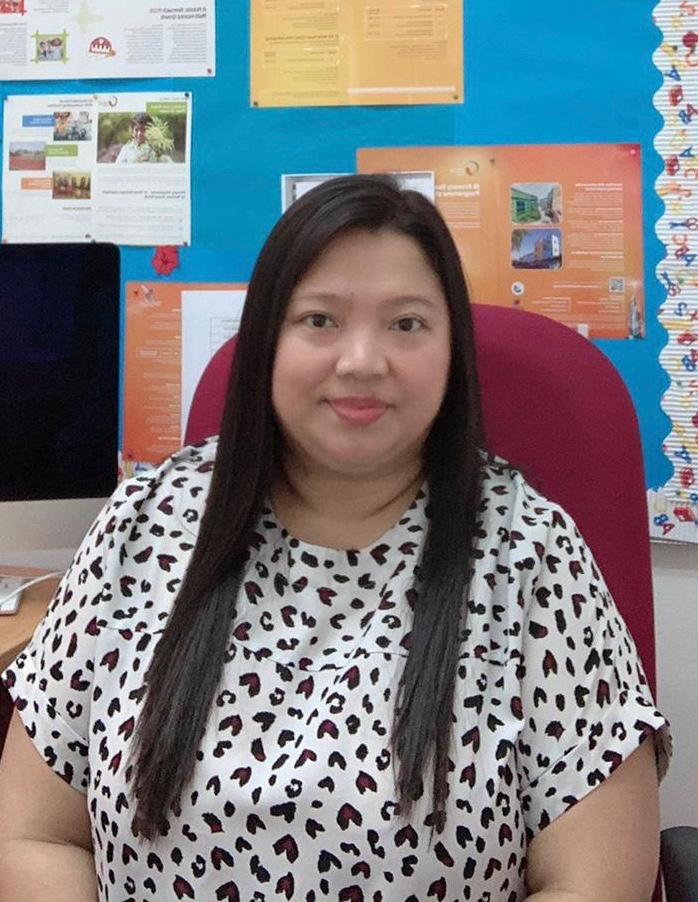International Baccalaureates Primary Years Programme (IB PYP), is a distinct educational framework for children between the age group of 5 to 12 years. Lately, the curriculum has been popular for offering a 21st century education and helping children develop a global outlook so that they can assimilate easily with the world at large.
Most of the parents have heard about IB PYP and its growing success in futuristic schools across the world. But, they still lack information on the key highlights of the Programme and how is it different from other traditional curricula.
While IB PYP is tested and tried by schools and vetted by experts in the field of education, what are some of the things that parents must know about the framework before choosing it over other curricula for their primary school kid.
Specially designed for primary years –Did you know that IB PYP is specially designed keeping in mind the learning requirements of children up to twelve years? The Geneva based International Baccalaureate board created this educational framework for internationally-minded students who want to attain a learning experience that is not limited to a specific region but spreads across geographies.
Through a structured approach towards nurturing curiosity, love for exploration, and critical thinking among students, the framework helps students in their learning journey for life-long, especially when they need to apply knowledge in real-life situations.
Teachers act as facilitators – Expect no spoon-feeding in a PYP class! Teachers act as partners and facilitators who facilitate new learning opportunities and active participation by students. Students take the responsibility of their own learning, compare, contrast, establish connections and then reflect on what they learnt. This way students look at learning from the other side of the table and rather than getting probed to perform actions, chart out their own path of learning through answering relevant questions.
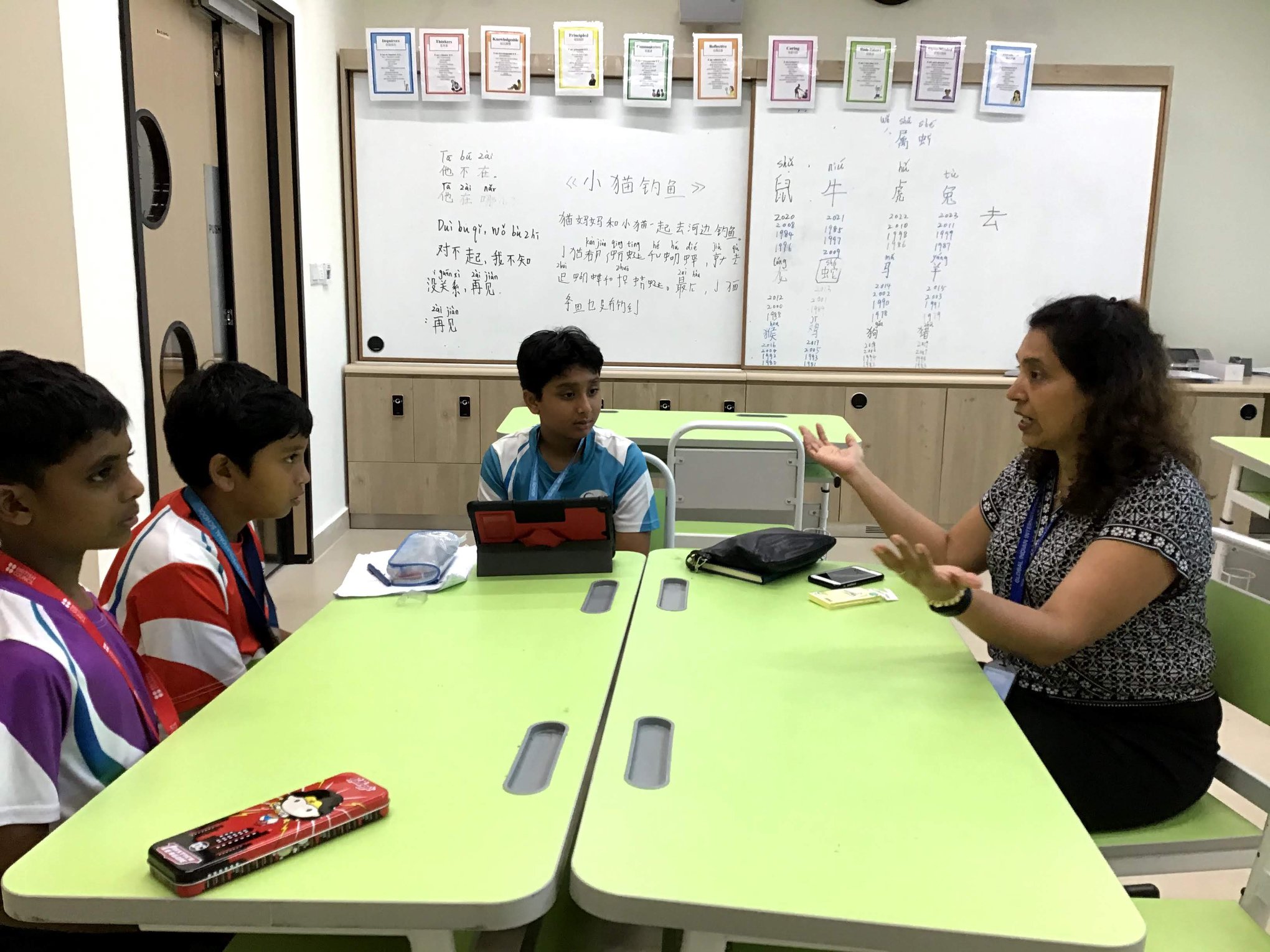 Teacher facilitating discussion on line of inquiry with IB PYP students
Teacher facilitating discussion on line of inquiry with IB PYP students
Teaching is not confined to traditional subjects – Transdisciplinary approach is the key to learning in IB PYP. The students do not study traditional subjects like math, science and language in a compartmentalised manner, but rather explore a central idea, like, ‘who we are?’ and use math, English and science concepts to answer various questions associated with the central idea. In the process they learn the ideas associated with traditional subjects.
Inquiry is the key to learning – Students in a typical PYP class will be seen exploring questions like, ‘Why does this matter?’, ‘How is this connected to other ideas?’ and ‘What can we do with this knowledge?’ Teachers create a programme of inquiry based on the transdisciplinary themes and Through a series of questions students establish connection and then reflect on the derived answers to master various concepts.
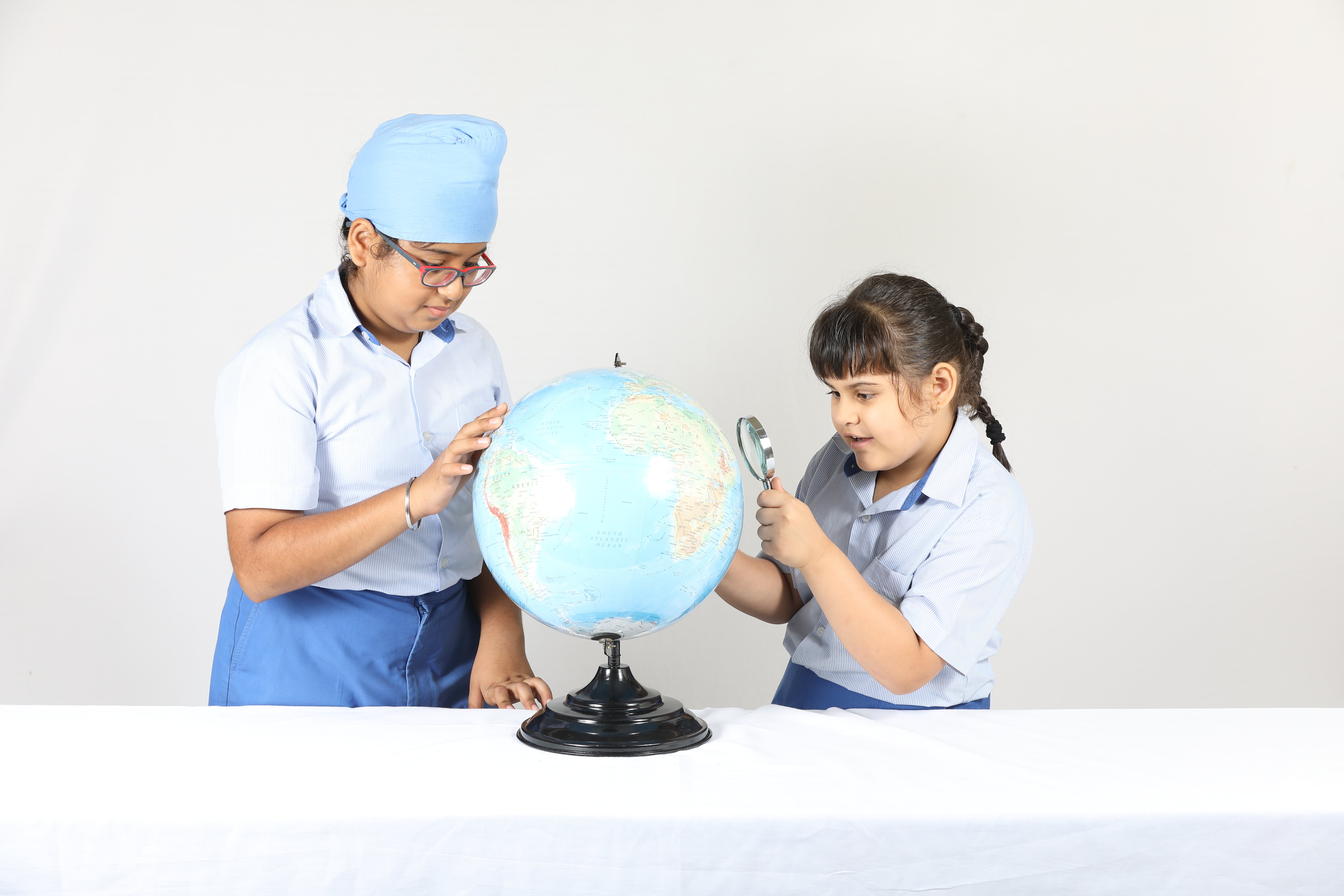 Hands-on and collaborative learning are the main traits of IB PYP
Hands-on and collaborative learning are the main traits of IB PYP
Unlike traditional learning approaches, PYP does not rely on rote learning and acquisition of knowledge that is limited to books. The main focus of the framework is to let the child learn through their own experiences and develop the correct line of inquiry so that the learning is not only theoretical but also applicable at the same time.
IB PYP is offered at GIIS at both the campuses - East Coast and SMART Campus, visit our webpage to know more.
